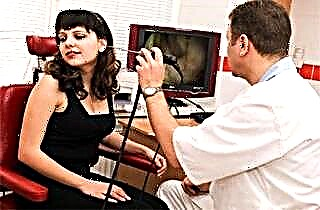Discomfort in the ear, discomfort, pain syndrome are subjective sensations of the patient. Only a specialist dealing with this problem can clarify their nature, confirm their presence, determine the treatment tactics. However, sensations such as knocking, clicking, pulsation in the ear can be caused by both ear diseases and pathology of other organs and systems. In order to receive qualified assistance, a specialist needs to collect the entire range of accompanying complaints, study objective data, conduct instrumental and hardware examination of the patient.
 The causes and treatment of pulsation in the left ear or in the right depend on which organ is involved in the process, the ear itself or the vessels of the head. The most common causes of pulsation in the ear are as follows:
The causes and treatment of pulsation in the left ear or in the right depend on which organ is involved in the process, the ear itself or the vessels of the head. The most common causes of pulsation in the ear are as follows:
- eustachitis, inflammation of the middle and inner ear;
- pathology of the vessels of the brain;
- traumatic injury;
- the action of ototoxic drugs;
- tumor.
Inflammation of different parts of the ear
The main symptom of inflammatory processes in the Eustachian tube and ear is pain syndrome. Depending on the location and nature of the lesion, it can be pressing, bursting, can be characterized by lumbago, pulsation, etc. The inflammatory process is characterized by the presence of edema, the formation of exudate. These factors affect the walls of the tympanic cavity and the auditory tube, leading to a decrease in pressure in the tympanic cavity. This effect may result in a throbbing pain sensation.
The inflammatory process is often localized on one side. The process is characterized by an acute course. If its spread is noted, ear drops and, if necessary, antibiotics may be prescribed by an otolaryngologist.
Labyrinthitis
In the inflammatory process of the inner ear, the explanation for why the pulsates in the ear are somewhat different. Labyrinthitis is a difficult process that is a complication of purulent otitis media, meningitis, or can develop as a result of trauma. Exposure to a bacterial, toxic agent, or traumatic damage to the nerve endings of the cochlea leads to pathology of the sound-perceiving part of the hearing organ. This results in a pulsating sensation in the ear.
Since the inner ear is also an organ of balance, the defeat of this part of the ear is accompanied by the presence of a number of additional symptoms that make it possible to clarify the diagnosis and determine the therapeutic tactics. Among them:
- violation of gait;
- dizziness;
- inability to stand upright;
- balance disorder;
- nausea;
- vomit.
 Depending on the degree of damage to the inner ear, permanent hearing loss may develop on the affected side. In addition to the otolaryngologist, a neuropathologist is engaged in the study of this pathology. Therapeutic measures include both therapeutic measures and surgical treatment aimed at sanitizing a purulent focus or even removing the labyrinth with further drainage of the cranial cavity.
Depending on the degree of damage to the inner ear, permanent hearing loss may develop on the affected side. In addition to the otolaryngologist, a neuropathologist is engaged in the study of this pathology. Therapeutic measures include both therapeutic measures and surgical treatment aimed at sanitizing a purulent focus or even removing the labyrinth with further drainage of the cranial cavity.
Therapeutic actions involve the appointment of antibacterial and anti-inflammatory drugs, neuroprotectors, drugs that improve the microcirculation of the inner ear.
Due to the transferred labyrinthitis, the lost functions of the auditory nerve are not restored.
In the future, it is necessary to have hearing aids or hearing restoration surgery.
Vascular pathology
Vascular diseases leading to the development of pulsation in the ears can be caused by atherosclerotic vascular lesions or developmental abnormalities, when there is a narrowing of an artery or vein at some interval, there is a defect in the vascular wall. It is the development of such pathological processes that can explain why it pulsates in the ears. With atherosclerotic vascular lesions, it is characteristic that the pulses in the ears and on the radial artery do not correspond to each other. The development of cardiovascular pathology is characterized by increased pulsation in the ears when lifting weights, tilting the head, performing physical activity.
Traumatic injury
Any traumatic injury is accompanied by impaired microcirculation in the focus, the presence of edema. It is these factors that determine the causes of the pulse in the ears and its treatment. Therapeutic measures depend on the extent of the lesion, the severity of other symptoms. The development of a symptom is often one-sided, prevailing on the side of the lesion.
In the case of a blunt object, we can talk about a concussion, and pulsation in the ear is one of its symptoms. In this case, a consultation with a neurologist must be carried out without fail. In the presence of a puncture or laceration wound, when hemostatic measures are important, emergency care should be provided by surgeons or traumatologists with the participation of an ENT doctor and a neuropathologist.
Tumors
Tumor processes are characterized by a slow increase in symptoms. Unlike vascular pathology, one-sided pulsation is most often noted, mainly from the side of the development of a neoplasm.
 The volumetric mass puts pressure on nearby tissues, leading to compression of the vessels that feed the inner ear or brain. These factors may be responsible for the development of pulsation in the ear.
The volumetric mass puts pressure on nearby tissues, leading to compression of the vessels that feed the inner ear or brain. These factors may be responsible for the development of pulsation in the ear.
In the case of a tumor of the spine, the pathological process can spread to both ears.
An important part of the treatment in this case is to determine the localization of the formation, its size, structure. In this regard, hardware techniques, computed and magnetic resonance imaging, and ultrasound of blood vessels have become widespread. Further therapeutic measures are due precisely to the results of the examinations.
Ototoxic drugs
The use of ear drops, as well as antibiotics with an ototoxic effect, should be agreed with the ENT doctor.
It is the unjustified use of hazardous drugs that can lead to the destruction of the nerve fibers of the inner ear or the bones of the middle ear. In severe cases, the use of drugs with an ototoxic effect can cause not only a violation of sound perception and a feeling of pulsation in the ear, but also contribute to persistent hearing loss.
The constant sensation of pulsation in the ears is a big problem for patients, as it leads to sleep disturbance and irritability. Over time, this symptom can lead to persistent depression and the development of other pathological conditions.



